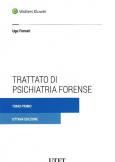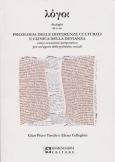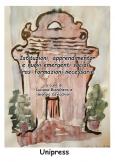Pagina prodotti
Libreria Online
Trattato di psichiatria forense
L’ottava edizione del Trattato di psichiatria forense si conferma in due tomi, complementari e integrati reciprocamente.
I temi trattati nel primo volume si riferiscono alla dottrina della responsabilità e dell’imputabilità; alla nozione e ai contenuti dell’infermità di mente; alla tipologia, criteriologia e metodologia peritali; ai disturbi gravi di personalità, alla vittimologia e alla testimonianza; agli usi e ai finalismi delle misure di sicurezza psichiatriche; al dibattito irrisolto circa i rapporti tra la “cura” e il “controllo” del malato di mente autore di reato; ai possibili rapporti tra comportamento criminale e disturbi mentali diagnosticati sotto il profilo categoriale, psicopatologico e funzionale.
Il secondo volume è dedicato ai temi della minore età; alla consulenza in ambito civile; agli accertamenti peritali nel diritto canonico; alle complesse tematiche relative alla valutazione del danno biologico; all’applicazione degli istituti di protezione negli ambiti della disabilità psichica; ai problemi del consenso e agli aspetti deontologici ed etici dell’agire psichiatrico e psicologico; ai complessi risvolti della responsabilità professionale in ambito sia penale, sia civile; ai difficili rapporti tra scienze umane e sistema della giustizia; infine, al dibattito sempre vivo sulla c.d. “prova scientifica” nelle discipline forensi.
Mindfulness e dipendenza da gioco d'azzardo
Il gioco d’azzardo patologico è aumentato significativamente nell’ultimo decennio, anche grazie all’esplosione tecnologica che permette una facile fruizione on line. La gravità del quadro spinge terapeuti e ricercatori a individuare efficaci e innovativi strumenti per la prevenzione e l’intervento. Il presente volume offre da un lato un panorama aggiornato relativo al gioco d’azzardo patologico/gambling e dall’altro l’approfondimento dell’applicabilità delle tecniche psicoterapeutiche basate sulla Mindfulness quali strumenti di applicazione sulla dipendenza specifica. Nella proposta dell’autrice si trova, nell’ultima parte del volume, la presentazione di un lavoro con un gruppo di persone in terapia per gambling addiction.
Lo Psicologo e la Progettazione
Progetti in ambito Clinico, Sociale, Evolutivo e del Lavoro.
LO PSICOLOGO E LA PROGETTAZIONE vuol essere un supporto per i giovani laureati in psicologia che devono affrontare la prova pratica dell’Esame di Stato e per gli psicologi che operano all’interno di Organizzazioni e si trovano a dover elaborare (e, possibilmente, realizzare) un progetto in area clinica, sociale, evolutiva, del lavoro.
Le Università forniscono un eccellente contributo teorico, ma poco orientano nella fase progettuale e, in generale, nella pratica professionale, nonché nell’approccio al mondo del lavoro. Da qui l’esigenza di uno strumento agile e pragmatico che risponda alla domanda: come si fa un progetto?
Il testo è diviso in quattro parti:
Il concetto di progetto: un’introduzione teorica su cosa significhi progettare e sui vantaggi dell’approccio per progetti;
Progettazione e project management: i principi generali per l’elaborazione e la gestione di progetti in diversi ambiti applicativi;
L’elaborazione di progetti in ambito psicologico: metodologia ed accorgimenti per elaborare un progetto coerente ed attuabile;
Esempi applicativi: progetti svolti in diversi ambiti tematici che possano fungere da guida e riferimento.
In questa seconda edizione sono stati rivisti alcuni capitoli, per chiarire e contestualizzare meglio i punti salienti del lavoro per progetti, fermo restando il metodo rigoroso e strutturato che permette non solo una buona organizzazione, ma anche la valutazione e la validazione successive alla realizzazione dei progetti.
Sono stati aggiunti anche altri esempi di progetto, alcuni dei quali effettivamente realizzati o proposti a diverse organizzazioni, frutto di studio di giovani colleghi.
Logoi Psicologia delle differenze culturali e clinica della devianza
Il volume “dialoghi” (dall’etimo greco, δία “fra” e λόγοι “discorsi”), nasce nell’ambito dell’insegnamento di Psicologia delle differenze culturali e clinica della devianza come occasione di dialogare “di e su” l’oggetto dell’insegnamento stesso, ovvero le differenze culturali e la clinica della devianza. L’opera, dunque, offre lo spazio discorsivo entro cui discutere, entro cui, appunto, dialogare di psicologia, di scienza, dei rapporti tra psicologia e psichiatria, tra lingua e linguaggio, tra processo e contenuto, della valenza sociale della psicologia rispetto alla comunità.
Psicologia della percezione. Guida allo studio
Quarta edizione
Questa nuova edizione, arricchita, tra l’altro da una ricerca sui rapporti intermodali fra qualità espressive, consiste in un’esposizione sintetica di alcuni argomenti di psicologia della percezione visiva accompagnata da dimostrazioni e da riferimenti utili per cercare e sfruttare la ricca documentazione di fenomeni percettivi che si trova sul web.
La trattazione delle problematiche si avvale in misura rilevante di questo materiale che permette di avere esperienza diretta di fenomeni fino a pochi anni fa visibili solo nei laboratori di psicologia.
Lo studente e il cultore della materia potranno trovare ulteriori riferimenti utili ad approfondire la sua preparazione su alcuni settori o a documentarsi sul piano bibliografico.
Il libro è corredato da esercizi che consentono di verificare il grado di preparazione raggiunto.
Istituzioni apprendimento e nuovi emergenti sociali. Tras-formazioni necessarie
Questo testo nasce da una forte esigenza di interrogarci, con una modalità collettiva, su una particolare domanda: che cosa sta accadendo alle e nelle nostre istituzioni?
Come stanno reagendo le nostre organizzazioni alla crescente pressione sociale, alla trasformazione dei bisogni, ad un inanellamento di questioni che sembrano, da un po’ di tempo, non rispettare più il composto canovaccio di domanda-offerta, che per qualche tempo, ha costituito il principio ordinatore della erogazione dei servizi alla persona? [...]
In questa pluralità di immagini e di vissuti, che a sua volta è connessa a specifici campi di ricerca ed ambiti di lavoro, abbiamo ritenuto, a partire dalla attività di formazione e supervisione che realizziamo da anni nella rete di cooperative sociali del consorzio Sol.Co Mantova e nelle altre istituzioni in cui operiamo, di far circolare questa domanda, porgerla a colleghi ed amici che con le istituzioni e la loro cura hanno molto a che fare: operatori sociali, formatori, supervisori, terapeuti, ri-cercatori.
Ne esce un testo che compone una trama complessa in cui teorie, esperienze, ripensamenti, scoperte o rivisitazioni possano tessersi com-ponendo un tessuto di figura-sfondo col senso di aiutarci a capire, di mettersi reciprocamente a fuoco, in una cornice di complementarietà, consapevoli che solo lo scambio e l’accoglienza dei diversi scenari ci avrebbero illuminato il sentiero.
Das Endinger Judenspiel - Il dramma sugli ebrei di Endingen
Dall’edizione del 1883 di Karl von Amira
Il dramma anonimo Das Endinger Judenspiel, dato alle stampe nel 1883 e redatto probabilmente a cavallo tra XVI e XVII secolo, mette in scena un presunto caso di omicidio rituale di cui furono accusati, nel 1470, gli ebrei della cittadina di Endingen am Kaiserstuhl, in Brisgovia. Tre ebrei vennero incolpati di aver massacrato, in combutta con altri membri della locale comunità ebraica, una famiglia di mendicanti cristiani, allo scopo di procurarsi il sangue dei due figli degli accattoni. Dopo un rapido processo i tre ebrei, rei confessi del pluriomicidio, furono condannati a morte sul rogo. Gli studiosi che nel XX secolo si sono occupati del caso Endingen hanno dimostrato come le confessioni dei tre ebrei siano state estorte con la tortura e come essi siano stati giustiziati da innocenti. È solo nel XX secolo, tuttavia, che la riabilitazione dei tre ebrei ebbe luogo. Ed è solo nel 1967 che i resti dei quattro mendicanti cristiani furono rimossi dalla Chiesa di San Pietro a Endingen, dove erano stati conservati e venerati per secoli come reliquie di martiri. Nel dramma gli ebrei vengono dipinti come spietati carnefici, carichi di livore contro i cristiani e assetati del loro sangue. Lo Endinger Judenspiel da un lato intende mettere in guardia gli spettatori contro gli ebrei e dall’altro vuole celebrare le autorità secolari locali per aver reso giustizia ai mendicanti e aver liberato Endingen dei pericolosi assassini.
Questo testo, per il modo in cui tratteggia la figura del perfido ebreo assetato del sangue dei bimbi cristiani e per l’elogio che tributa alle autorità locali, le quali giustamente, come viene ribadito ossessivamente nell’ultimo atto, condannarono a morte i tre ebrei, si inserisce in quel filone di opere, redatte tra l’ultimo quarto del XV e la prima metà del XVII secolo - vengono qui messe a confronto con lo Endinger Judenspiel le opere sui casi di Rinn del 1462, Trento del 1475, Benzhausen e Waldkirch del 1504, Pösing del 1529, Sappenfeld del 1540, Leitomischl del 1574 -, le quali narrano presunti casi di infanticidio rituale, dipingendo gli ebrei come spietati assassini e celebrando le autorità cristiane, secolari o ecclesiastiche, perché esse estirparono la mala pianta ebraica e si ersero a vindici del bimbo cristiano martire e a protettrici dei propri sudditi. In questi testi e nello Endinger Judenspiel, dunque, il topos del malvagio ebreo non è al servizio della teologia cristiana, come si dà nelle opere di defensio fidei o in quelle che vogliono dimostrare la veridicità di importanti dottrine come il dogma della transustanziazione, bensì è funzionale all’encomio dell’autorità locale, la quale sovente traeva vantaggio tanto dall’eliminazione fisica degli ebrei residenti nei suoi domini quanto dalla creazione di un nuovo martire cristiano, vittima degli ebrei, il cui culto comportava prestigio e lauti introiti, frutto delle offerte dei pellegrini.
Sorriderò con i tuoi occhi
“Brucio ogni giorno, la rabbia di non vederti crescere e la gioia di essere la tua mamma”.
Non è un diario. È un estratto di vita. [...] Non è il diario delle terapie o degli episodi, non voglio raccontare e descrivere le nostre giornate piene di paura o di gioia, i nostri modi di vivere l’una dell’altra; non è il racconto di fatti accaduti e vissuti. È lo scorrere del tempo che vede amicizie nascere e finire, che sente il dolore dell’isolamento e la gioia della condivisione.
Il ricavato della vendita del libro sarà devoluto al reparto di oncoematologia pediatrica di Padova per la realizzazione del progetto “teen-zone”.








